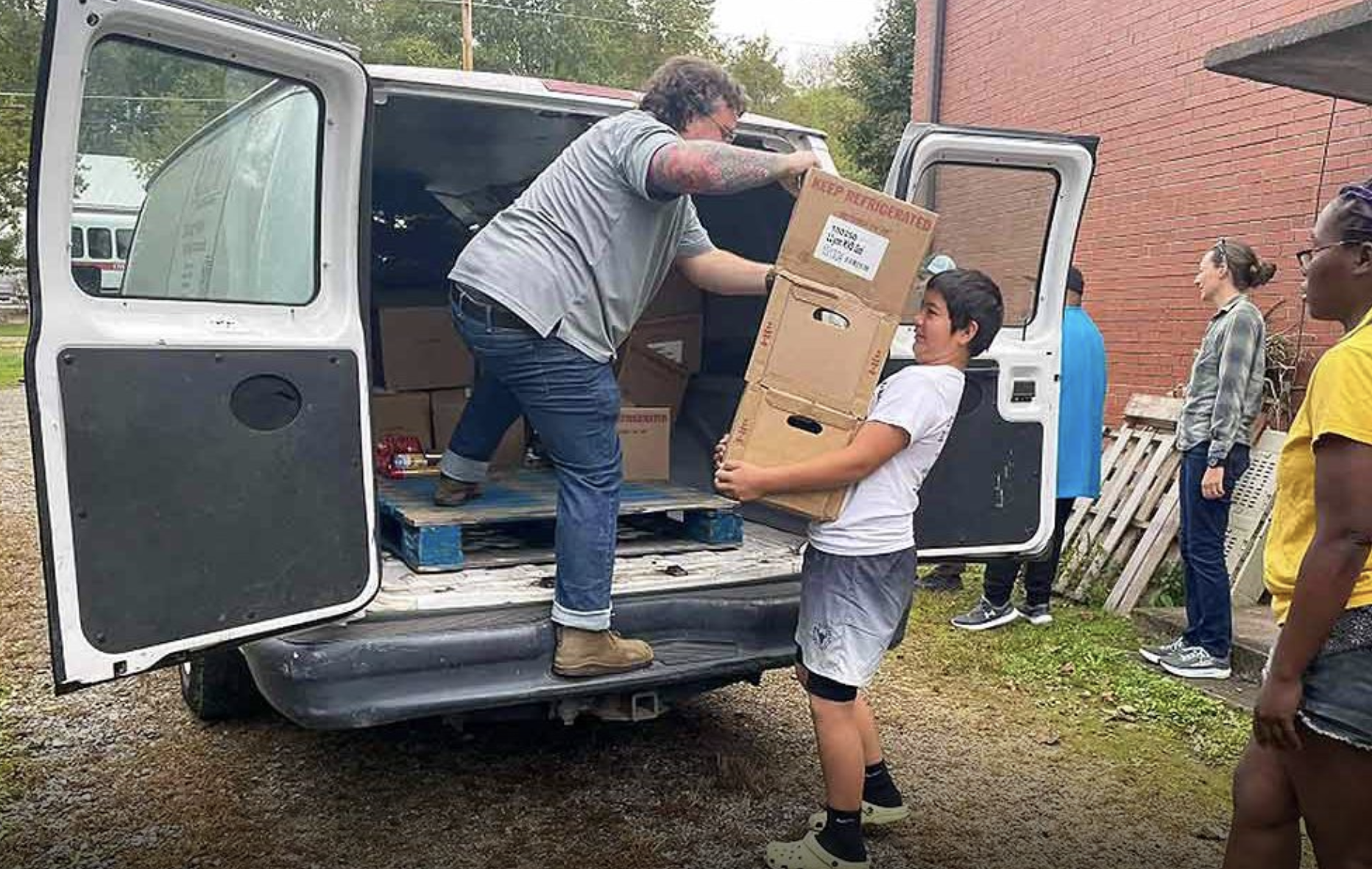
- Details
- By Native News Online Staff
After Hurricane Helene ravaged parts of the southeastern U.S., the Cherokee Nation has stepped up to assist recovery efforts for the Eastern Band of Cherokee Indians (EBCI) in North Carolina. Cherokee Nation Emergency Management, along with students and staff from the Cherokee Nation Immersion School, traveled to the area to provide essential aid.
Cherokee Nation Emergency Management team organized donated supplies and assembled food and care kits for families affected by the storm. They also coordinated the delivery of 38,000 bottles of fresh water from the Cherokee Nation to those in need, providing crucial support to a community grappling with the hurricane's aftermath.
These relief efforts are a direct response to the widespread damage caused by Hurricane Helene, which has left many citizens without access to clean drinking water. The supplies aim to offer vital assistance during this difficult time, highlighting the strong solidarity between the Cherokee Nation and EBCI.
“The Cherokee people have always stood together in times of need. Our hearts go out to our brothers and sisters in the Eastern Band of Cherokee Indians who have been affected by Hurricane Helene,” Cherokee Nation Principal Chief Chuck Hoskin Jr said. “By delivering these essential supplies, we hope to provide not just relief, but also a reminder that they are not alone in this recovery. Together, we are stronger, and we will overcome these challenges.”
Students and staff from the Cherokee Nation Immersion School also participated in local cleanup efforts, helping to clear debris and restore the area. While volunteering, they had the opportunity to engage in the ceremonies of the 112th Cherokee Indian Fair, fostering a powerful sense of unity and resilience within the community during this recovery period.
“We are engaged with EBCI and FEMA daily and will be prepared to deploy more resources as conditions warrant,” Chief Hoskin added.
More Stories Like This
NCAI Passes Two Emergency Resolutions on Immigration Enforcement ActivitiesChickasaw Lighthorse Police Officer named Indian Country Law Enforcement Officer of the Year
Indian Gaming Association Rallies Broad Coalition Against Sports Event Contracts It Calls Illegal Threat to Tribal Sovereignty
Navajo Resources and Development Committee Issues Notice on Livestock Inspection Requirements
American Prairie, Tribal Coalition Files Protest Over Rescinded Grazing Rights
Help us defend tribal sovereignty.
At Native News Online, our mission is rooted in telling the stories that strengthen sovereignty and uplift Indigenous voices — not just at year’s end, but every single day.
Because of your generosity last year, we were able to keep our reporters on the ground in tribal communities, at national gatherings and in the halls of Congress — covering the issues that matter most to Indian Country: sovereignty, culture, education, health and economic opportunity.
That support sustained us through a tough year in 2025. Now, as we look to the year ahead, we need your help right now to ensure warrior journalism remains strong — reporting that defends tribal sovereignty, amplifies Native truth, and holds power accountable.
 The stakes couldn't be higher. Your support keeps Native voices heard, Native stories told and Native sovereignty defended.
The stakes couldn't be higher. Your support keeps Native voices heard, Native stories told and Native sovereignty defended.
Stand with Warrior Journalism today.
Levi Rickert (Potawatomi), Editor & Publisher


